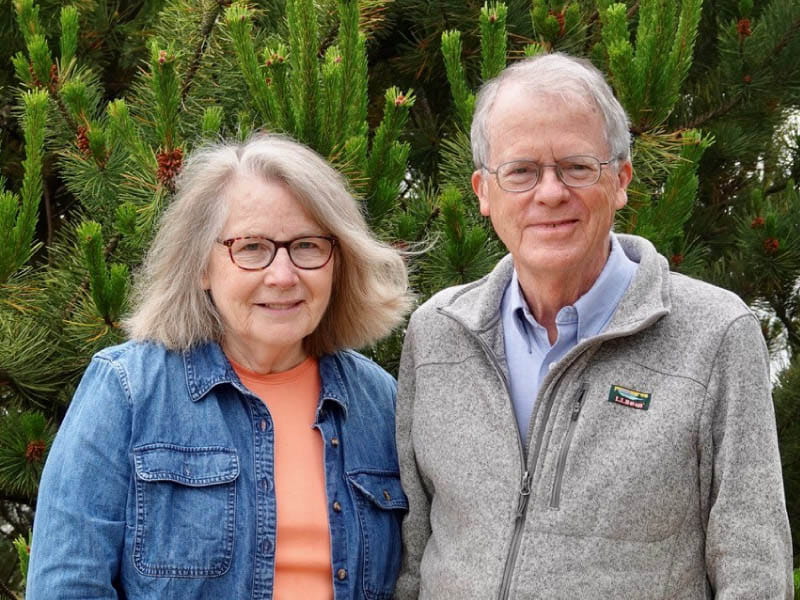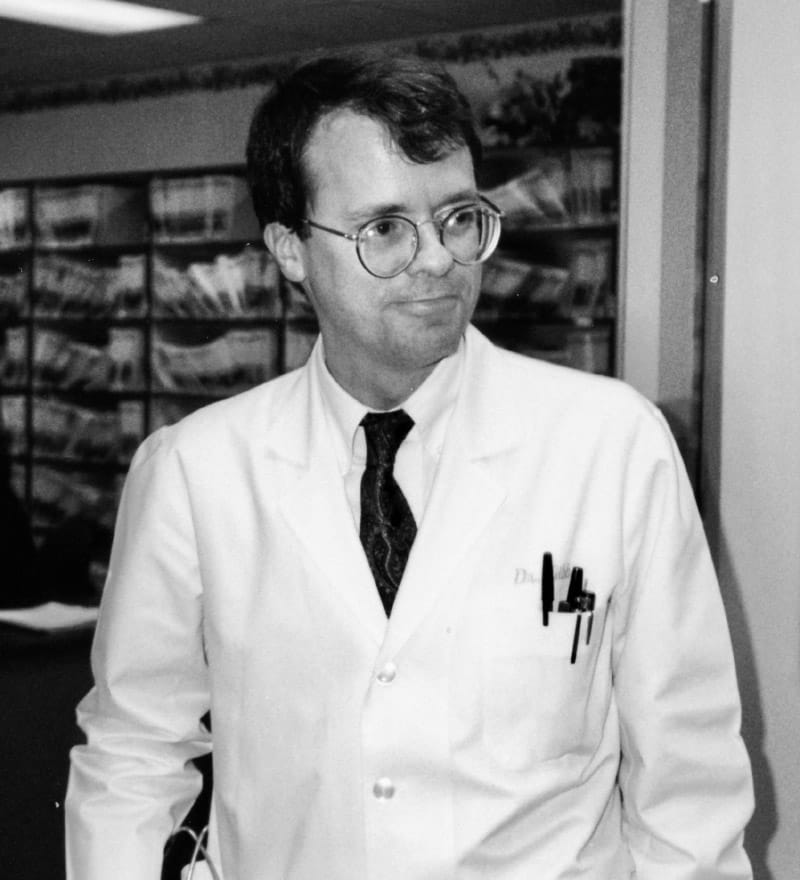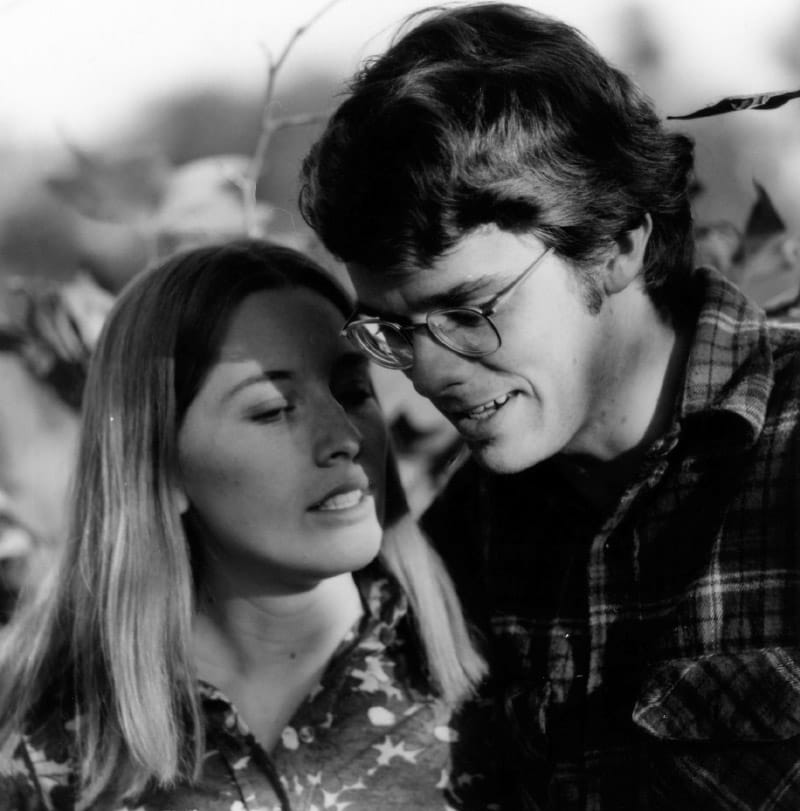How a neurologist faces the disease that is slowly stealing his cognitive powers
By Laura Williamson, American Heart Association News

It was 2006 when Dr. Daniel Gibbs first noticed he was losing his sense of smell. But it wasn't what he didn't smell that tipped him off that something might be wrong.
It was what he did smell: perfume, mixed with baked bread. "The same thing, every time."
Gibbs, a neurologist in Portland, Oregon, knew this was an olfactory hallucination. And that meant something wasn't working properly in his brain.
"I attributed it to getting older, which is a common cause of decreased ability to smell," he said. But Gibbs was just 57 – not so old that he should be losing his sense of anything. "I also knew losing your sense of smell was an early sign of Parkinson's disease, so I thought it might be that."
It wasn't.
Gibbs was experiencing an early symptom of Alzheimer's disease. But it would be another six years before he knew it. He has since written a book about his experience, which was turned into a documentary. He also keeps a regular blog to help people understand what it's like to live with Alzheimer's. These days, he spends a lot of his time learning and talking about how to slow progression of the disease, something he's been trying to do since he got his diagnosis more than a decade ago.
Gibbs and his wife, Lois Seed, discussed what he's learned about Alzheimer's dementia and how he navigates the condition for "The Experts Say," an American Heart Association News series in which specialists explain how they apply their professional knowledge to their own lives. Their remarks have been edited.
When did you realize your symptoms were due to Alzheimer's disease?
In 2012, Lois was doing a genealogical project, so we did some genetic testing. Mine came back showing I had two copies of APOE4, a gene known to influence the risk of developing Alzheimer's disease, which totally gobsmacked me. Having two copies means it is almost certain to eventually cause Alzheimer's.
I had no measurable cognitive impairment at that time. I was in charge of the neurology resident training program at Oregon Health and Science University in Portland, and I was seeing patients in the clinic, so it was a very busy year for me. Even though it was difficult, I was still able to get all the balls to balance in the air.
What did you do once you knew your genetic risk for Alzheimer's?
The first thing I did was to go to one of my colleagues and have some cognitive testing done. It was essentially normal with the caveat that all of my cognitive domains were in the 90th percentile except verbal memory, which was in the 50th percentile. So there was a strong hint that there was some incipient loss of function of verbal memory.
With that in hand, I went to my department chair and explained the situation. I had no impairment but did not feel it was safe for me to continue to practice. I retired in 2013.
Lois: You also went looking for studies you could join, because it's a big deal to see people before they experience symptoms.
That's right, I went to the University of California in San Francisco, because they have a ton of studies there. The first study I was involved with was a longitudinal neuroimaging study. I had PET scans of abnormal amyloid and PET scans for tau proteins – two protein clusters in the brain that play a role in the development of Alzheimer's disease. And I had cognitive testing.
They loved having me down there because they rarely have people with as early a stage of disease as I showed up with. About a year later, I joined a clinical trial for an anti-amyloid antibody drug that is now approved by the Food and Drug Administration to treat early Alzheimer's disease.
What else did you learn about how to slow progression of the disease?
This is not rocket science. The sort of things that are good preventive behavior for brain disease are also good for preventing heart and vascular disease.
There are evidence-based lifestyle changes that include getting daily aerobic exercise; eating a Mediterranean-style diet, such as the MIND diet; getting mentally stimulating activity; staying socially engaged; getting at least seven hours of sleep nightly; and getting good control of any cerebrovascular risk factors, such as diabetes, high blood pressure, high cholesterol, obesity and smoking.
What's good for the heart is good for the brain!

How do you put this knowledge into practice?
Walking is just built into my day. I do it with my dog, Jack, an 11-year-old English cocker spaniel who is about to age out. He can't keep up with 10,000 steps as easily anymore, so I take some walks by myself. We live in the hills, so I'm getting very good aerobic exercise, short of running.
I used to go to the gym, but that stopped at the start of the COVID pandemic.
I also have a short workout at home. The first thing I do is I use resistance bands, which is a strength exercise. That takes about 15 minutes and then I do tai chi pretty religiously, something I started six months ago. I can clearly see that it helps my balance, but I can't see if it helps my brain, which is continuing to do more poorly.
And thanks to Lois, I've been eating a healthy diet, really forever.
Lois: I didn't have control over those french fries you were eating.
I don't eat red meat anymore. I closely follow the MIND diet, which is essentially the Mediterranean diet with more berries and nuts. It includes a heavy focus on fruits and vegetables, especially green leafy vegetables, beans, nuts, whole grains, seafood, lean poultry and uses olive oil to cook. I'm quite happy with it.
Because I lost my sense of smell, which is totally gone now, I have virtually no taste either. I eat the same thing for lunch and breakfast every day. I enjoy it. I make a sandwich on whole wheat bread that has tuna salad and garbanzo beans, avocado and arugula to get the dark leafy greens. Then some grapes or bananas and half a dark chocolate bar.
Breakfast is homemade granola, and I add cranberries or blueberries. I throw walnuts in as well. Dinner is whatever Lois picks that I can eat.
I stopped drinking alcohol. There's no safe amount of alcohol if you are on this trajectory. So I got rid of it, but I used to love red wine.
Do you know what to expect as the disease progresses?
That's a difficult question to answer. In the old days, when people got a diagnosis of Alzheimer's, they were only living three to five years after that because we made the diagnosis so late. There's less information out there about people who have known they have the disease for a long time and how they will do going forward.
Lois: There's a lot of confusion and misconception because there are different types of dementia. Alzheimer's tends to progress more slowly. The early stage can last 20 years. Here we are 13 years after his diagnosis and Dan's really doing well. I'm a little more of a caregiver than I was a few years ago, but not by much. He dresses himself and monitors medications, and people who talk to him casually wouldn't even know. We've been at that plateau for quite some time.

How would you describe the stage you're at right now?
Right now, I have mild Alzheimer's dementia. To say you have dementia is to say you are having trouble managing your personal affairs. I'm just at a stage now where I can't balance a checkbook. And as things go along, I will have more problems with memory and the ability to recognize people and remember their names.
I've lost my train of thought.
Lois: You were talking about what stage you're at.
When I'm not remembering where I am, then I will have severe dementia.
There are memories I have going back through my whole life. They tend to be events that are emotionally laden.
I'm terrible with names. I know my immediate family members. My neighbors, I forget their names.
Lois is taking over the things I can't manage anymore, like the financial part of our lives, anything that involves planning ahead, scheduling, calendars, remembering all the family stuff, managing the household.
She also goes with me when I have a talk to give.
Lois: He gives talks on Alzheimer's, but almost every time that Dan is getting ready to speak to a group, he gets frustrated and says, "This is the last time I'm doing this," because getting his thoughts together is challenging. He writes out notes. Most of the talks he gives now are screening events for the film with question-and-answer sessions.
It works well if Lois is there to find …
Lois: Words.
That makes it easier.





